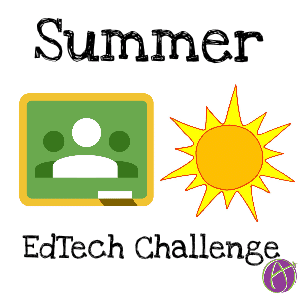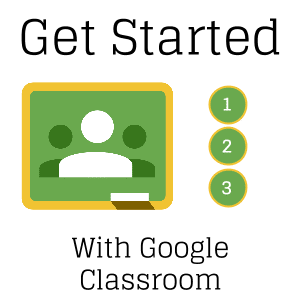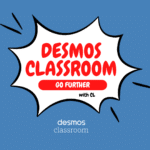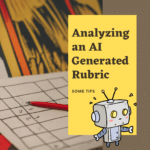Google Classroom Summer EdTech Challenge
One of the things that can be a little confusing about Google Classroom is that the teacher side does not match the student side. It will be easier for teachers to understand how students interact with Google Classroom if the teachers participate in a Google Classroom class as a student. Using Google Classroom for professional development has been very popular. This not only is an efficient way to deliver PD and resources but is a great way to expose teachers to the student perspective of Google Classroom.
Site EdTech Leader
If you are someone on your campus who teachers look to for tech help, consider creating a “Summer EdTech Challenge.” Create a Google Classroom class and invite the teachers on your campus. Create short tasks, suggestion that they take 10 minutes or less. Create some challenges that give teachers easy ideas for ways they can use Google Classroom with students. Create other challenges that help them to get their Google Classroom set up for the fall. Digital Citizenship is a big area of need for teachers to learn about. Create some assignments in the “Summer EdTech Challenge” to help teachers be aware of digital citizenship issues and how they can help their students with this. Teachers may not be aware of the 4 C’s of 21st-century classrooms, Depth of Knowledge (DOK) levels or the SAMR model. Creating short challenges in the “Summer EdTech Challenge” on these topics can help teachers be more prepared in the fall!
Create Community
We all have the best intentions that over the summer we are going to prepare our classrooms, read a book, clean our house…. you know how that goes. Simply setting up a Google Classroom with quick challenges possibly will not be enough to have the teachers on your campus work on them all summer. Like a book club, you need to build community around the activities. Post encouragements to the stream. Call participants out by name for doing a good job. Provide “grades” and feedback throughout the summer to acknowledge the teachers efforts to turn in challenges. Create challenges that encourage interaction with other teachers participating in the challenge. Create a Twitter hashtag to encourage each other throughout the summer.
To help you get started, I have a blog post on 10 Things to Start with in Google Classroom. You could also create a book club in a Google Classroom class around the book “50 Things You Can Do with Google Classroom.”
Suggested Challenges
Add your ideas for challenges that can be included in the EdTech Summer Challenge. If you have Google Docs, links or other resources that can be used for the challenge, please include those links.











5 thoughts on “Google Classroom: Summer EdTech Challenge”
Super Idea… Wondering if Google Classroom might someday have a feature to collaborate across domains? Or perhaps for some quick imports of learning challenges/tasks from one domain to another. Love watching the evolution of this tool. Very timely, Alice!
I like the idea but is it possible to use the same email in Classroom as both a teacher and a student? I am just wondering? Going to try to test this out this morning.
Not in the same Classroom. You are a teacher in the Class or a student in the Class.
I sent a question earlier today regarding use of classroom with the same email as both teacher and student. I think we have figured out that it does work if the email domain is set up correctly. Our teacher domain is able to be both teacher and student but the student domain can only be a student. I am still testing this out.
That is correct. Teacher can be both teacher and student.
Student is only student.